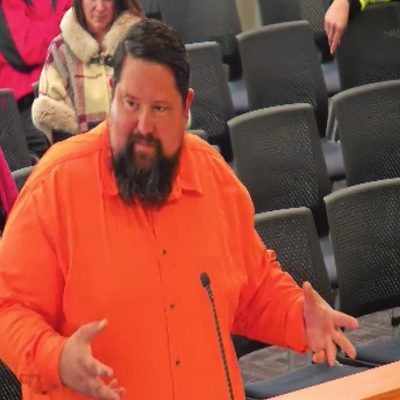
Washington state officials responded to the City of Spokane's order to remove Camp Hope with a strongly-worded letter criticizing the city's homelessness response and calling the city's deadline "arbitrary and misleading."
Camp Hope is a homeless encampment with over 600 residents that is located on an empty block owned by the Washington State Department of Transportation near Interstate 90 in Spokane. The camp is unauthorized, but WSDOT has not taken action to prevent it — much to the city's frustration.
The Tuesday morning letter to the city was signed by officials from the Washington State Patrol, state Department of Commerce and WSDOT. It follows a Sept. 8 letter from the City of Spokane that demanded the state begin removing Camp Hope by Sept. 23 and finish by Oct. 14 or be deemed a "nuisance property" and face legal action.
The city has also said it will be seeking reimbursement for the $350,000 that officials claim to have spent on resources for Camp Hope.
On Tuesday, the state said they would not entertain the idea of discussing reimbursement with the city, pointing to an offer of millions in state funding to help move people camped there into better housing options.
The state's letter says the city's deadline for removal is "completely unrealistic given the scope of the issue and current lack of housing capacity." Clearing Camp Hope, the letter states, will simply force vulnerable people to relocate to other areas.
State officials outlined four actions that would allow for Camp Hope's removal:
1. The offering of shelter and services to people living there
2. Secure storage of their belongings
3. Safety and security for people on site and work crews
4. Restoration and cleanup of the property
"This is not the first time this has been explained to the city, yet the city remains resolute that homelessness and those experiencing it is a state problem and not a local one. It is both," the letter says.
The letter goes on to say Spokane has "clearly lost sight of the $24 million investment the state has already made to immediately address homelessness in Spokane." They're referring to money allocated as part of a statewide initiative from the Department of Commerce that aims to house people living on state rights-of-ways. Some of the money has already been put towards projects by the Empire Health Foundation and Catholic Charities, but most has yet to be spent.
Part of the city's plan to address Camp Hope comes in the form of the Trent Resource and Assistance Center, which opened earlier this month. On opening day, 13 Camp Hope residents were transported to the shelter via a rented party bus.
A July assessment found that only 51 of the 601 Camp Hope residents surveyed would choose to go to a shelter. Many have voiced concerns about a lack of privacy. As of Sept. 8, 20 people from Camp Hope were staying at the Trent shelter, which the state agencies described on Tuesday as a "good start," but not an adequate solution for all Camp Hope residents. Commerce has offered to pay the operating costs of the shelter associated with people from Camp Hope, and said contract negotiations are underway.
As Camp Hope has grown over the past 10 months, so have tensions between the city and the state.
In February, Spokane police placed WSDOT on notice because of elevated crime, waste, noise and drug use on the property. In July, as temperatures soared above 104, the city ordered WSDOT to remove a large cooling shelter erected by volunteers to protect Camp Hope residents from the heat. Citing humanitarian concerns, WSDOT did not comply. The city didn't follow through on their threat of a fine and the cooling shelter remains standing today.
During an Aug. 30 meeting packed with furious West Hills neighbors, Mayor Nadine Woodward blamed Commerce for a rushed planning process and a "sloppy, messy deal" to purchase a former Quality Inn and use it to house homeless people. In a subsequent statement, Commerce pushed back on the Mayor's characterization and noted, as they have several times, that Camp Hope originally started as a protest outside City Hall over the city's lack of action on homelessness.
In Tuesday's letter, state agencies said they hope to partner with the city and work together to solve the challenges associated with Camp Hope.
"Sadly, to date the city seems more preoccupied with blaming the state for the problem it ultimately played a hand in creating and not acknowledging its own roles and responsibilities regarding residents of its own city," the letter says. "We sincerely hope that your energy will be redirected and applied to meaningful solutions for all of your residents to include the most vulnerable."
In an email accompanying the letter, WSDOT said "actions planned in the near future" include fencing, RV removal, badging and a curfew at the camp.
"This work starts the process for strategically decreasing the size and footprint of Camp Hope, while transitioning people to shelter/housing alternatives," the email said.
The Mayor's Office did not immediately respond to a request for comment on Tuesday afternoon.
In the letter, the state agencies said they plan to meet with the city later this week.




























